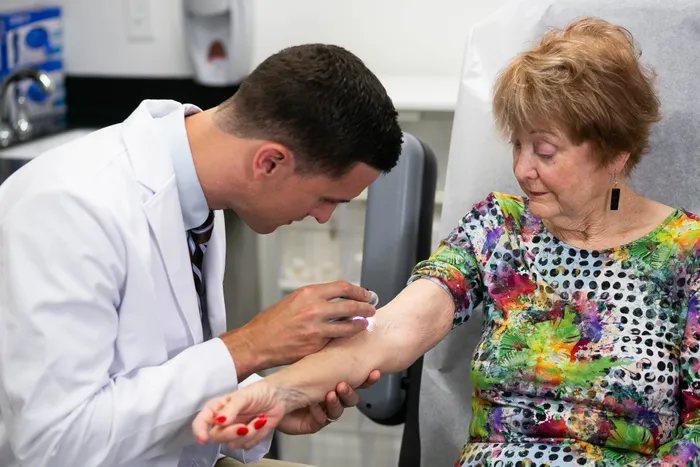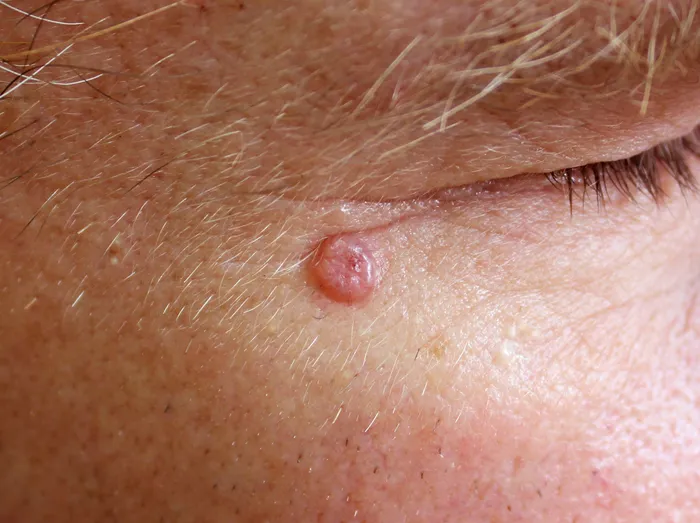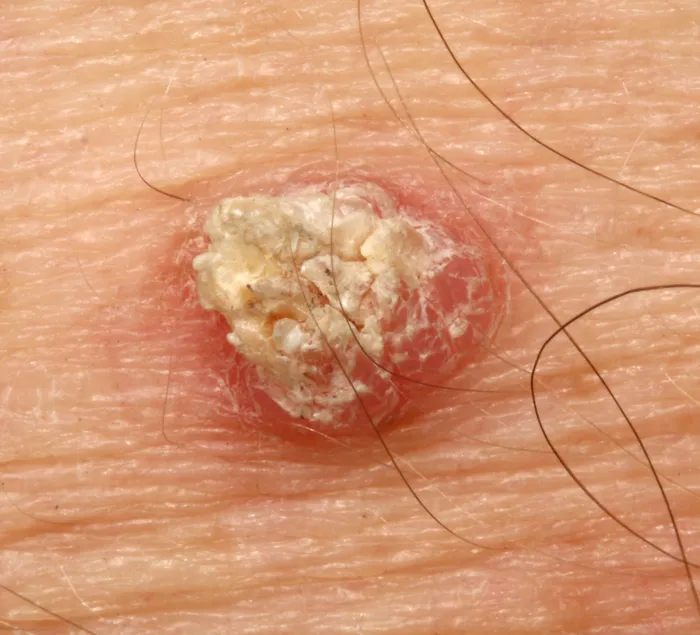Non-Melanoma Skin Cancers
At Fairview Dermatology, we are passionate about screening for, diagnosing and treating skin cancer.

Understanding Basal Cell Carcinoma
Basal Cell Carcinoma (BCC) is the most frequently occurring type of skin cancer. It often appears as a skin colored, pink, pearly or hyper pigmented bump, or a bleeding or scabbing sore that heals and then returns. BCCs commonly develop on areas exposed to the sun, such as the face, ears, neck, hands, and arms.
While BCC rarely spreads to other parts of the body, it can grow deep and wide in the skin and tissue if left untreated. Early detection and treatment are crucial to prevent extensive damage to surrounding tissue and to achieve the best possible outcomes.

Recognizing Squamous Cell Carcinoma
Squamous Cell Carcinoma (SCC) is the second most common form of skin cancer. It often appears as a firm, red nodule or a flat lesion with a scaly, crusted surface. SCCs can develop on all areas of the body but are most common in sun-exposed areas. Unlike BCCs, SCCs have a higher risk of spreading to other parts of the body if left untreated.
Early detection of SCC is vital, as it can be aggressive when allowed to progress. Regular skin checks and prompt attention to any suspicious growths are essential steps in managing this type of skin cancer.

Discover Why Our Patients Choose Us
TRUSTED BY OVER
11,000
PATIENTS
PRIVILEGED TO SEE PATIENTS FROM
Fairview
AND SURROUNDING AREAS INCLUDING ALLEN, MCKINNEY, LUCAS, PLANO, & FRISCO
Preventive Measures
Preventing non-melanoma skin cancers involves a combination of sun protection strategies and regular skin examinations. While enjoying outdoor activities is important for overall health, it's crucial to protect your skin from harmful UV rays. We recommend using broad-spectrum sunscreen with an SPF of 30 or higher, wearing protective clothing, and seeking shade during peak sun hours.
Annual full-body skin examinations by a board-certified dermatologist are essential, especially for individuals with a history of sun exposure or other risk factors. These check-ups allow for early detection and treatment of any suspicious lesions. If you notice any unusual changes in your skin, don't hesitate to schedule an appointment with Fairview Dermatology. Remember, early intervention leads to the best outcomes in skin cancer treatment.

